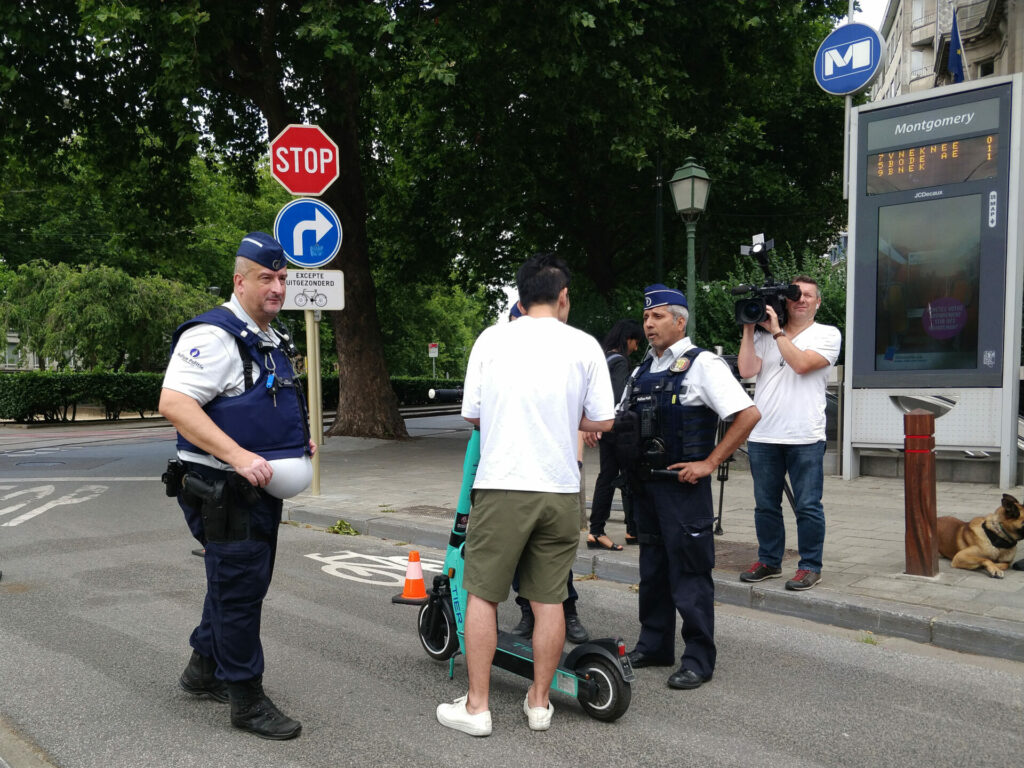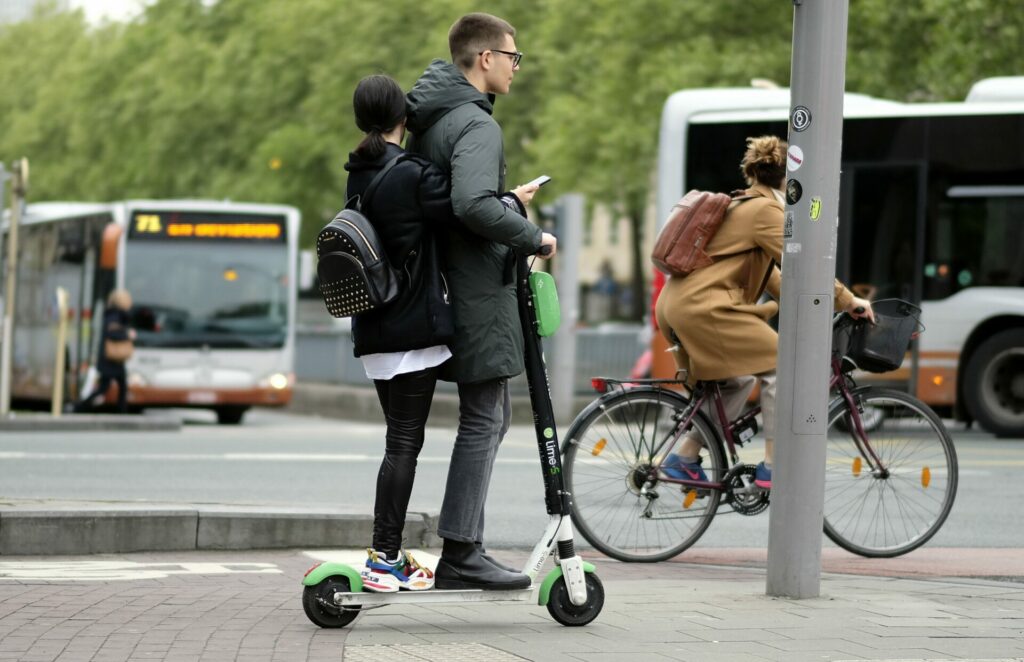Efforts to promote alternative forms of transport to driving are bearing fruit as the number of cars circulating in Brussels has fallen 25% thanks to the Good Move traffic policy.
At the same time, "soft mobility" (essentially referring to travel through non-motorised means) has surged across Belgium. However this has brought a concerning rise in accidents and offences with data revealing a 60% rise in accidents related to soft mobility since 2016.
To better understand the scale of the safety issues that come with these new ways of getting around, leading insurer AXA analysed the related accidents and found that in the past year, 38% of workplace accidents involved soft mobility – up from 24% in 2016. These accidents are more frequent during the winter period.
While the majority (56%) of these accidents lead to minor injuries, one in five incidents involving cyclists, scooter riders, single-wheel, or hoverboard users results in work absences of over a month. In particular, scooter-related accidents have surged, now accounting for 11% of such incidents in 2022 compared to just 1% in 2016.

Police have been clamping down on unabiding scooter riders in Brussels. Credit: Belga / Antony Gevaert
Antwerp recorded seven times as many accidents involving e-scooter users in 2022 than in 2019. Four fatalities have been reported since 2020 whilst the city's mayor, Bart De Wever, has raised concerns about accidents being underreported, as many do not involve other vehicles and are often attributed to e-scooter users losing control.
De Wever advocates additional safety measures, including mandatory helmet use and standardized speed limitations. He believes that a more uniform approach at the European level is required, as rules for e-scooters vary significantly across member states. In Germany, for instance, the speed limit is 20 kilometres per hour, while in Belgium, it is 25 kilometres per hour, leading to confusion and potential safety issues.
Related News
- Brussels will not ban shared e-scooters, Mobility Minister says
- Au revoir les trottinettes: Paris ban on shared e-scooters takes effect tomorrow
- Electric scooters to be forbidden on pavements and for riders under 16
Meanwhile in Wallonia, the Walloon Agency for Road Safety (AWSR) has introduced a "Road Quiz" – a unique competition designed to improve knowledge of the Highway Code, particularly in the context of soft mobility. The annual quiz, this year from November 6 to December 6 but accessible year-round, is a fun and engaging way to reacquaint oneself with the rules of the Highway Code.
A recent AWSR survey found that over one-fifth (22%) of Walloon drivers do not stay informed about Highway Code updates. Of those who do, only 15% actively seek out this information, relying on the news or social media for updates. In fact, the Code is evolving all the time, adapting to changing mobility modes.
In light of the increasing presence of cyclists and scooter riders on the roads, the 2023 edition of the quiz places particular emphasis on soft mobility.

